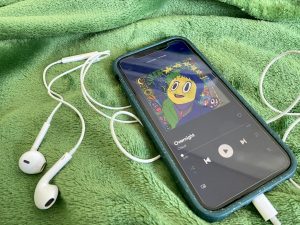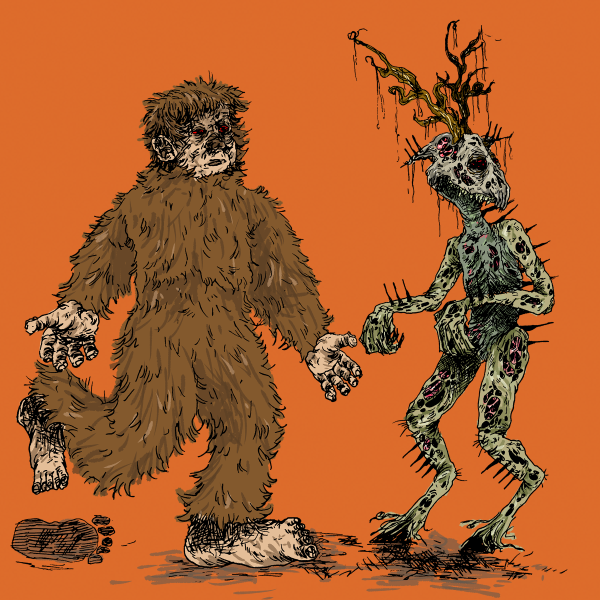On Record: “Smiling with No Teeth”
April 14, 2021
Genesis Owusu has released one of the most cohesive and thought-provoking albums of the year so far, and it’s his first album ever.
“Smiling with No Teeth” is a hard-hitting and memorable record. Running roughly 53 minutes, the Ghanaian-Australian artist discusses depression and racism represented as “black dogs,” a recurring theme of the album.
Starting the album with a bang, “On the Move!” features a loud electronic instrumental with Owusu’s mesmerizing vocals layered over. As the crunchy synth bass takes over the track, Owusu introduces the “black dogs.”
“Centrefold” is one of the most interesting instrumentals on the record. With a reversed chorus, Owusus sings aggressive and threatening lyrics from the perspective of the black dog. The drums laid over a deep bass mixed with the hazy strums of guitars make up the hypnotic instrumental, pairing well with the incomprehensible reversed chorus.
Picking up the speed from “Don’t Need You,” an upbeat track where Owusu realizes his independence, he brings out loud drums and clashing guitars to sing about “realizing the black dog’s mannerisms,” he said in an interview with Apple Music. The chorus echoes in your mind after the track is over, as Owusu belts out paired with the instrumental build-up singing, “I can’t leave ‘til you get it (Baby wake up, wake up, wake up, wake up).”
“Gold Chains” is one of Owusu’s best displays of lyricism on the record. Owusu sings about dealing with the music industry, how it can consume artists, and how he is trying to survive and succeed in it, singing, “I sacrifice a gentle life for goals that leave me terrified/But pray this doesn’t lead to my demise.” Clashing electric guitars mix their way into the instrumental as the drums, and light synth chords keep the track steady.
In the second half of the album, Owusu deals with the other black dog, rapping and singing about his experiences with racism, its grip on society and how it can manifest into people, resulting in microaggressions and stereotypes.
On “I Don’t See Colour,” Owusu eases up on the loud and layered instrumentals and raps over a simpler beat with haunting traces of airy female vocals to bring attention to the significance and seriousness of his lyrics. Owusu is more blunt in this half of the album, with lines such as “When you see the Arab man, it’s the bombs and flares/When you see the Asian man, it’s the yellow scare/When you see the Black man, its riots and terror/But when I talk about slavery, you weren’t there, how convenient.”
On the ballad “No Looking Back,” things are seemingly looking up for Owusu, as he is determined to move on from the past and start a new beginning, even with “all the scars” on his skin. The instrumental is very easygoing, with female vocals intertwined in the background, even ending with a flashy collection of trumpets and saxophones. But as the track fades away, it seems the record isn’t ending on that high note.
“Bye Bye” is a cry of return to the issues Owusu dived into earlier in the album. In the same interview with Apple Music, Owusu said he felt ending the album on “No Looking Back” was too much of a “Hollywood ending,” and that “there’s no point where you can dust your hands off and be like ‘okay, racism over, depression over.’” The haunting and hazy instrumental emphasizes Owusu’s relationship with his struggles and how even when things are getting better, he finds himself “crawling back.”
“Smiling With No Teeth” is a memorable work of art. The mix of R&B, funk, pop, rap and neo-soul paired with Owusu’s unique vocals and lyrics all contribute to this distinguishable concept album.
















